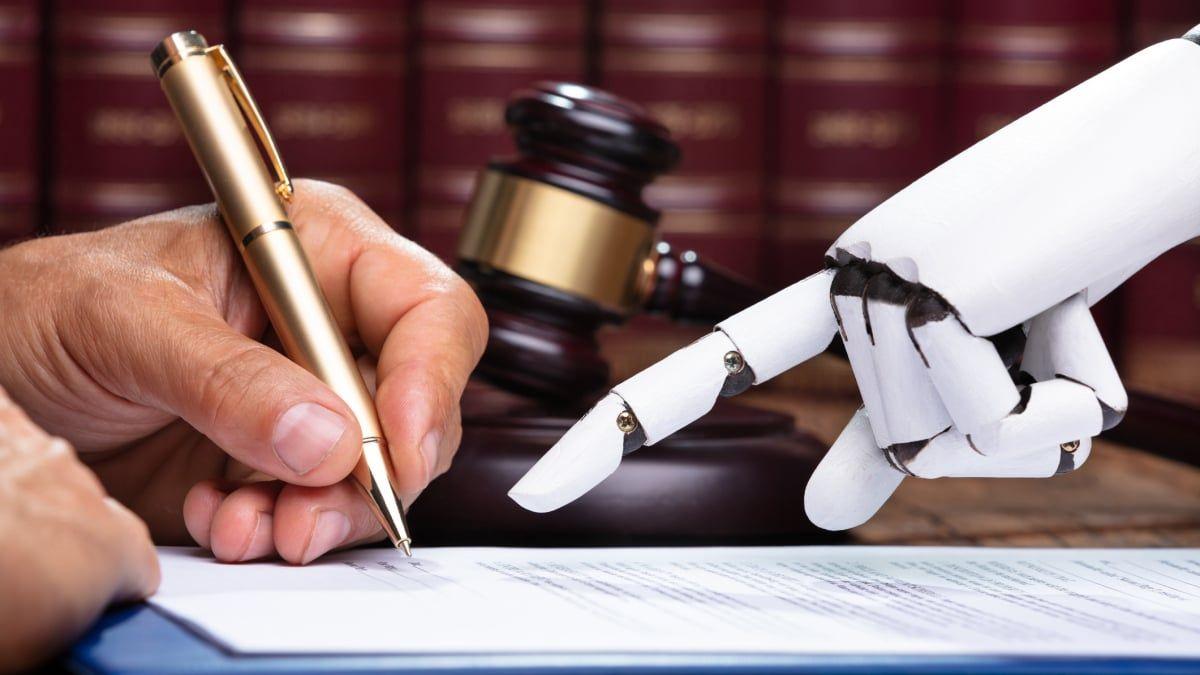MyPillow CEO's Lawyers Fined for AI-Generated Court Filing Riddled with Errors
6 Sources
6 Sources
[1]
Mike Lindell's lawyers fined after using AI in brief riddled with mistakes
Lawyers representing MyPillow and its CEO Mike Lindell were fined $6,000 after using artificial intelligence in a brief that was riddled with misquotes and citations to fictional cases. Attorney Christopher Kachouroff and the law firm of McSweeney Cynkar & Kachouroff were fined $3,000, jointly and severally. Attorney Jennifer DeMaster was separately ordered to pay $3,000. This "is the least severe sanction adequate to deter and punish defense counsel in this instance," US District Judge Nina Wang wrote in an order issued yesterday in the District of Colorado. Kachouroff and DeMaster were defending Lindell against a defamation lawsuit filed by former Dominion Voting Systems executive Eric Coomer, whose complaint said Lindell and his companies "have been among the most prolific vectors of baseless conspiracy theories claiming election fraud in the 2020 election." The sanctioning of the lawyers came several weeks after a jury trial in which Coomer was awarded over $2.3 million in damages. A jury found that Lindell defamed Coomer and ordered him to pay $440,500. The jury also found that Lindell's media company Frankspeech defamed Coomer and ordered it to pay damages of $1,865,500. The jury did not find that MyPillow defamed Coomer. The February 25 brief that got Lindell's lawyers in trouble was an opposition to Coomer's motion asking the court to exclude certain evidence. Coomer's motion was partially granted before the trial began. "Correct" version still had wrong citations As we wrote in an April article, Kachouroff and DeMaster said they accidentally filed a "prior draft" instead of the correct version. But Wang's order yesterday said that even the so-called "correct" version "still has substantive errors," such as inaccurate descriptions of previous cases. The original version has nearly 30 defective citations. Wang wasn't convinced by Kachouroff's argument that the error-riddled filing "represents a clear deviation from what my practice has been," and was just a one-off mistake. Wang wrote that Kachouroff did the same thing in a different court: Finally, this Court turns to Mr. Kachouroff's statement that "Doc. 283 represents a clear deviation from what my practice has been, and given the number of errors, it is just as reasonable to presume that the document could have been a mistake, especially when I commented during the hearing that this must have been a draft." But this assertion is belied by similar conduct before a different federal court. The Court takes judicial notice that, just seven days after this Court issued the Order to Show Cause, the same defense counsel team quietly filed two Notices of Errata regarding their briefing in Pelishek v. City of Sheboygan. Those errata demonstrate the same type of errors in the filed Opposition, including citations to cases that do not exist. Wang found that Kachouroff and DeMaster "violated Rule 11 because they were not reasonable in certifying that the claims, defenses, and other legal contentions contained in [the brief] were warranted by existing law or by a nonfrivolous argument... Nor is this Court persuaded by counsel's contention that the 'correct' version was prepared and ready to file on February 25, 2025." Wang did not agree with the lawyers that the filing of the wrong version "was simply an inadvertent error, given the contradictory statements and the lack of corroborating evidence." The lawyers were ordered to pay the fines by August 4. Lindell has said he plans to appeal the defamation verdict.
[2]
The MyPillow guy's lawyers fined for error-riddled AI-generated court filing
MyPillow CEO and Mike Lindell's legal team is in some hot water after submitting an AI-generated court filing, as reported by The New York Times. The legal brief was filled with errors, including misquotes of cited cases, misrepresentations of legal principles and references to cases that don't actually exist. All told, the court identified around 30 major errors in the document. Colorado judge Nina Wang issued fines for the mistake-riddled filing, stating that attorneys Christopher Kachouroff and Jennifer DeMaster of the law firm McSweeney, Cynkar and Kachouroff had violated federal civil procedure rules and that they "were not reasonable in certifying that the claims, defenses and other legal contentions contained in [the AI brief] were warranted by existing law." DeMaster and Kachouroff were fined $6,000 for the transgression. Lindell and MyPillow were not sanctioned for the improper filing, as the court noted that Kachouroff hadn't informed his client that he regularly uses AI tools like Microsoft CoPilot, Google Gemini and . When questioned, the lawyers admitted they used AI to prepare the brief but claimed they accidentally submitted an earlier draft in which the mistakes had not yet been corrected. Kachouroff said they had a corrected brief at the time of submission, but couldn't provide any evidence to support the claim. The team requested that any potential disciplinary action against them be dismissed but the court declined, finding that the explanation regarding the AI-written brief was not compelling. "Put simply, neither defense counsel's communications nor the 'final' version of the [brief] that they reviewed corroborate the existence of the 'correct' version," Wang wrote. "[N]either Mr. Kachouroff nor Ms. DeMaster provide the Court any explanation as to how those citations appeared in any draft of the [brief] absent the use of generative artificial intelligence or gross carelessness by counsel." The brief was initially presented back in February as the team defended Lindell in a defamation lawsuit brought forth by former Dominion Voting Systems employee Eric Coomer. A jury has since . Of course, this isn't the first time lawyers have tried to . Multiple legal professionals have been caught inappropriately using artificial intelligence in the past couple of years, with many whipped up by tools like ChatGPT.
[3]
MyPillow CEO's lawyers fined for AI-generated court filing
Lawyers for MyPillow CEO and election conspiracy theorist Mike Lindell have been fined after submitting a legal brief filled with AI-generated errors. It's yet another reminder that as exciting as AI technology may seem, it's still no substitute for actually putting in the work yourself. Colorado district court judge Nina Wang issued the penalties on Monday, finding that attorneys Christopher Kachouroff and Jennifer DeMaster of law firm McSweeney Cynkar and Kachouroff had violated federal civil procedure rules. Specifically, Wang found that the lawyers "were not reasonable in certifying that the claims, defenses, and other legal contentions contained in [the AI brief] were warranted by existing law." As such, Kachouroff and his firm have been fined $3,000, with another $3,000 fine issued to DeMaster. Fortunately for Lindell, neither he nor MyPillow were sanctioned, the court noting that Kachouroff had not informed them that he regularly used generative AI tools in his work. The AI-riddled brief first came to light in April, when the court questioned Kachouroff about the document's contents. Kachouroff and DeMaster had submitted the brief on Feb. 25, defending Lindell in a defamation lawsuit brought by former Dominion Voting Systems employee Eric Coomer. However, the court identified almost 30 defective citations in the document, including but not limited to misquotes of cited cases, misrepresentations of legal principles, misattributions of cases to the wrong court, and even citations of cases that do not exist at all. In short, much of the brief had simply been made up. Once questioned, the lawyers admitted that they had used AI to prepare the brief, with Kachouroff stating that he regularly uses AI tools such as Microsoft's Co-Pilot, Google's Gemini, and X's Grok in his work. Even so, they claimed that they had mistakenly submitted an earlier draft in which its AI-generated errors had not yet been corrected. As such, they requested to be allowed to refile the corrected brief, and further that any potential disciplinary action against them be dismissed. This week, the court declined their request for clemency, finding that Kachouroff and DeMaster's explanation regarding the AI-written brief was not compelling. The lawyers did provide email exchanges in which they discussed edits to the brief prior to filing. However, the court noted that the final draft in these exchanges was "substantially the same" as the brief they ultimately submitted, including the same errors. As such, while the lawyers subsequently supplied a "correct" brief to the court with the errors corrected, there is no evidence that it existed at the time the AI brief was initially filed. "Put simply, neither defense counsel's communications nor the 'final' version of the [brief] that they reviewed corroborate the existence of the 'correct' version," Wang wrote. "[N]either Mr. Kachouroff nor Ms. DeMaster provide the Court any explanation as to how those citations appeared in any draft of the [brief] absent the use of generative artificial intelligence or gross carelessness by counsel." The court also noted the "puzzlingly defiant tone and tenor" of Kachouroff's response to being called out, which didn't win him any points. Though Kachouroff claimed he was "caught off-guard" and effectively blindsided by the judge's questioning regarding the brief's factual errors, Wang considered it reasonable to expect a lawyer would be prepared to discuss the contents of a document they had approved, signed, and filed to court. Kachouroff's claim that this AI brief incident was a "clear deviation" from his typical practice was refuted as well, as the attorneys had quietly filed similar corrections to documents in a different case a mere week after this brief's errors came to light. "Those [corrections] demonstrate the same type of errors in the filed [brief], including citations to cases that do not exist," Wang noted. Lindell's attorneys aren't the first lawyers who have fallen afoul of generative AI, and they're unfortunately unlikely to be the last. Multiple legal professionals have been caught inappropriately using artificial intelligence in recent years, with many citing non-existent cases invented by AI tools like ChatGPT or Google Bard.
[4]
MyPillow CEO Mike Lindell's attorneys fined for inaccurate, AI-generated brief
The McSweeny Synkar and Kachouroff PLLC law firm and attorney Christopher Kachouroff are facing "jointly and severally" a sanction of $3,000. Attorney Jennifer DeMaster is also facing a $3,000 fine for the matter. Judge Nina Wang pointed out about 30 defective citations in a brief filed by the attorneys in February. The defects ranged from failing to include basic court information to citations of cases that do not exist. Wang, in her ruling, included an exchange in court wherein Kachouroff said he and DeMaster had signed and certified the brief. The court began by asking Kachouroff if the motion was generated by generative artificial intelligence. "Not initially. Initially, I did an outline for myself, and I drafted a motion, and then we ran it through AI," Kachouroff reportedly told the court. He was also asked if he had double-checked citations from the brief. "Your Honor, I personally did not check it. I am responsible for it not being checked," Kachouroff told the court, according to the ruling. Wang said she did not extend the sanctions to the defendants in the case -- which would include Mike Lindell -- because Kachouroff said he did not tell his clients he was using AI tools in his work. The defamation case against Lindell concluded last month, after a jury found that Lindell made multiple defamatory statements against Eric Coomer, a former employee of Denver-based Dominion Voting Systems, in regards to the results of the 2020 presidential election. On May 9, 2021, Lindell attacked voting machine companies and then said Coomer was a traitor. In another statement, on April 6, 2022, Lindell accused Coomer of being "part of the biggest crime this world has ever seen." The jury cleared Lindell of defaming Coomer eight other times for statements made by both himself and others who appeared on his online media platform.
[5]
MyPillow CEO Mike Lindell's lawyers fined for AI-generated court filing
A federal jury in Colorado found that MyPillow founder Mike Lindell defamed a former employee at Dominion Voting Systems after the 2020 presidential election. A federal judge has ordered the attorneys for MyPillow founder Mike Lindell to pay fines for using artificial intelligence to prepare court documents that contained several errors, including citations to nonexistent cases and misquotations of cited cases. Christopher Kachouroff and Jennifer DeMaster, both attorneys for Lindell in his defamation case, violated court rules when they filed a motion on Feb. 25 that contained nearly 30 defective citations, Judge Nina Y. Wang of the U.S. District Court in Denver ruled Monday, July 7. The court order obtained by USA TODAY says Lindell's attorneys filed the motion in response to an earlier motion filed by Eric Coomer, a former director at Dominion Voting Systems, who accused the MyPillow CEO of defaming him by helping spread a conspiracy theory that he rigged the election against President Donald Trump. A federal jury ruled in favor of Coomer on June 16, ending a lawsuit that the former director filed in May 2022 against Lindell and his two companies, MyPillow and FrankSpeech. Following the verdict, Lindell was ordered to pay over $2 million in damages, a number nowhere near the award amount Coomer had requested ($62.7 million), court records show. USA TODAY contacted Kachouroff and DeMaster on Tuesday, July 8, but has not received a response. How did the court find out Lindell's attorneys used AI? When the court questioned Kachouroff about the errors during a pretrial conference, he told Wang that he delegated the citation checking for the motion to his co-counsel, DeMaster, the court order reads. Wang did ask Kachouroff if the motion was "generated by generative artificial intelligence?" The attorney responded: "Not initially. Initially, I did an outline for myself, and I drafted a motion, and then we ran it through AI." After Kachouroff's admission, Wang asked him if he double checked the "citations once it was run through artifical intelligence?" The attorney responded: "Your Honor, I personally did not check it. I amresponsible for it not being checked." "Notwithstanding any suggestion to the contrary, this Court derives no joy from sanctioning attorneys who appear before it," Wang wrote in her ruling, adding that the sanction against the two attorneys was "the least severe sanction adequate to deter and punish defense counsel in this instance." Kachouroff told judge error-riddled motion was filed by accident Kachouroff also told Wang that the error-riddled motion was a draft that was filed by accident, according to the court document. Despite this, the judge found that the "final" version the attorney said he intended to file still contained "substantive errors," including some that were not included in the filed version. Both the attorneys' "contradictory statements and the lack of corroborating evidence" is what led to Wang deeming that the filing of the AI-generated motion was not "an advertent error" and merited a sanction, the court document reads. "Neither Mr. Kachouroff nor Ms. DeMaster provided the Court any explanation as to how those citations appeared in any draft of the Opposition absent the use of generative artificial intelligence or gross carelessness by counsel," Wang wrote in her ruling. Both attorneys were ordered to pay $3,000 each.
[6]
MyPillow CEO Mike Lindell's Lawyers Fined $6,000 For AI-Generated Court Filing Containing Nonexistent Case Citations
Enter your email to get Benzinga's ultimate morning update: The PreMarket Activity Newsletter A federal judge ordered MyPillow founder Mike Lindell's attorneys to pay $6,000 in fines for using artificial intelligence (AI) to prepare court documents containing nearly 30 defective citations, including references to nonexistent cases and misquotations. What Happened: U.S. District Judge Nina Wang in Denver sanctioned attorneys Christopher Kachouroff and Jennifer DeMaster $3,000 each on Monday for filing an AI-generated motion on February 25 that violated court rules, reported USA Today. The motion responded to defamation claims by Eric Coomer, a former Dominion Voting Systems director, who accused Lindell of spreading conspiracy theories about election rigging. The sanctions stem from a broader defamation case where Coomer sued Lindell and his companies, MyPillow and FrankSpeech, in May 2022. A federal jury ruled in Coomer's favor on June 16, ordering Lindell to pay over $2 million in damages, significantly below the $62.7 million Coomer requested. During a pretrial conference, Judge Wang questioned Kachouroff about citation errors in the filing. The attorney admitted using AI assistance, stating he "drafted a motion, and then we ran it through AI." When asked if he verified citations after AI processing, Kachouroff responded: "I personally did not check it. I am responsible for it not being checked." See Also: Trump Thanks Ron DeSantis, Florida Lawmakers for Renaming 4-Mile Stretch Near Mar-a-Lago 'Donald J. Trump Boulevard,' Calls It a 'Wonderful Honor' Why It Matters: Kachouroff claimed the error-laden motion was accidentally filed as a draft. However, Wang found the intended "final" version still contained substantive errors, some not present in the filed version. The judge determined the filing was not an inadvertent error based on "contradictory statements and the lack of corroborating evidence." "Neither Mr. Kachouroff nor Ms. DeMaster provided the Court any explanation as to how those citations appeared in any draft of the Opposition absent the use of generative artificial intelligence or gross carelessness by counsel," Wang wrote. Wang emphasized the sanctions represented "the least severe sanction adequate to deter and punish defense counsel," noting the court "derives no joy from sanctioning attorneys who appear before it." Read Next: Microsoft, Replit Team Up To Bring 'Vibe Coding' To Enterprise: AI Agents Let Anyone Build Software, 'No Code Required' Disclaimer: This content was partially produced with the help of AI tools and was reviewed and published by Benzinga editors Photo courtesy: Consolidated News Photos / Shutterstock.com Market News and Data brought to you by Benzinga APIs
Share
Share
Copy Link
Attorneys representing MyPillow CEO Mike Lindell face $6,000 in fines for submitting an AI-generated legal brief containing numerous errors, including citations to non-existent cases, in a defamation lawsuit.
AI-Generated Legal Brief Leads to Sanctions
In a case that highlights the potential pitfalls of using artificial intelligence in legal practice, attorneys representing MyPillow CEO Mike Lindell have been fined $6,000 for submitting an AI-generated court filing riddled with errors. The incident occurred during a defamation lawsuit filed against Lindell by former Dominion Voting Systems executive Eric Coomer
1
.
Source: Ars Technica
The Erroneous Filing and Its Consequences
U.S. District Judge Nina Wang identified nearly 30 defective citations in the brief filed on February 25, 2025. These errors ranged from misquotes of cited cases to references to non-existent legal precedents
2
. Attorneys Christopher Kachouroff and Jennifer DeMaster of the law firm McSweeney Cynkar & Kachouroff were each ordered to pay $3,000 in fines1
.Judge Wang ruled that the lawyers "violated Rule 11 because they were not reasonable in certifying that the claims, defenses, and other legal contentions contained in [the brief] were warranted by existing law or by a nonfrivolous argument"
1
. The court found their explanation that they had accidentally filed a "prior draft" unconvincing, noting that even the purported "correct" version still contained substantive errors1
.AI Usage Admission and Aftermath
When questioned about the errors, Kachouroff admitted to using AI tools in preparing the brief:
"Not initially. Initially, I did an outline for myself, and I drafted a motion, and then we ran it through AI," Kachouroff told the court
4
.The attorneys claimed they regularly use AI tools such as Microsoft CoPilot, Google Gemini, and X's Grok in their work
3
. However, they failed to provide evidence of a correct version of the brief existing at the time of filing, leading Judge Wang to conclude that the errors resulted from either "the use of generative artificial intelligence or gross carelessness by counsel"3
.
Source: Mashable
Related Stories
Broader Implications for AI in Legal Practice
This incident is not isolated, as multiple legal professionals have been caught inappropriately using artificial intelligence in recent years
3
. It serves as a cautionary tale about the risks of relying too heavily on AI in legal practice without proper verification and oversight.The Underlying Defamation Case
The controversial brief was filed in defense of Lindell against a defamation lawsuit brought by Eric Coomer. On June 16, 2025, a jury found that Lindell had defamed Coomer and ordered him to pay over $2.3 million in damages
5
. The jury determined that Lindell and his media company Frankspeech had made defamatory statements about Coomer in relation to conspiracy theories about the 2020 presidential election1
5
.This case underscores the ongoing legal challenges faced by those who promoted unfounded claims of election fraud, as well as the potential consequences of using emerging technologies without adequate safeguards in legal proceedings.
References
Summarized by
Navi
Related Stories
MyPillow CEO's Lawyers Face Scrutiny for AI-Generated Legal Brief with Numerous Errors
26 Apr 2025•Technology

AI Hallucinations in Legal Filings: Morgan & Morgan Warns Lawyers of Consequences
19 Feb 2025•Technology

AI-Generated Legal Citations Lead to Sanctions and Raise Concerns in Courts
15 May 2025•Policy and Regulation

Recent Highlights
1
OpenAI secures $110 billion funding round from Amazon, Nvidia, and SoftBank at $730B valuation
Business and Economy

2
Pentagon accepts OpenAI's autonomous weapons restrictions after blacklisting Anthropic
Policy and Regulation

3
Trump orders federal agencies to ban Anthropic after Pentagon dispute over AI surveillance
Policy and Regulation





